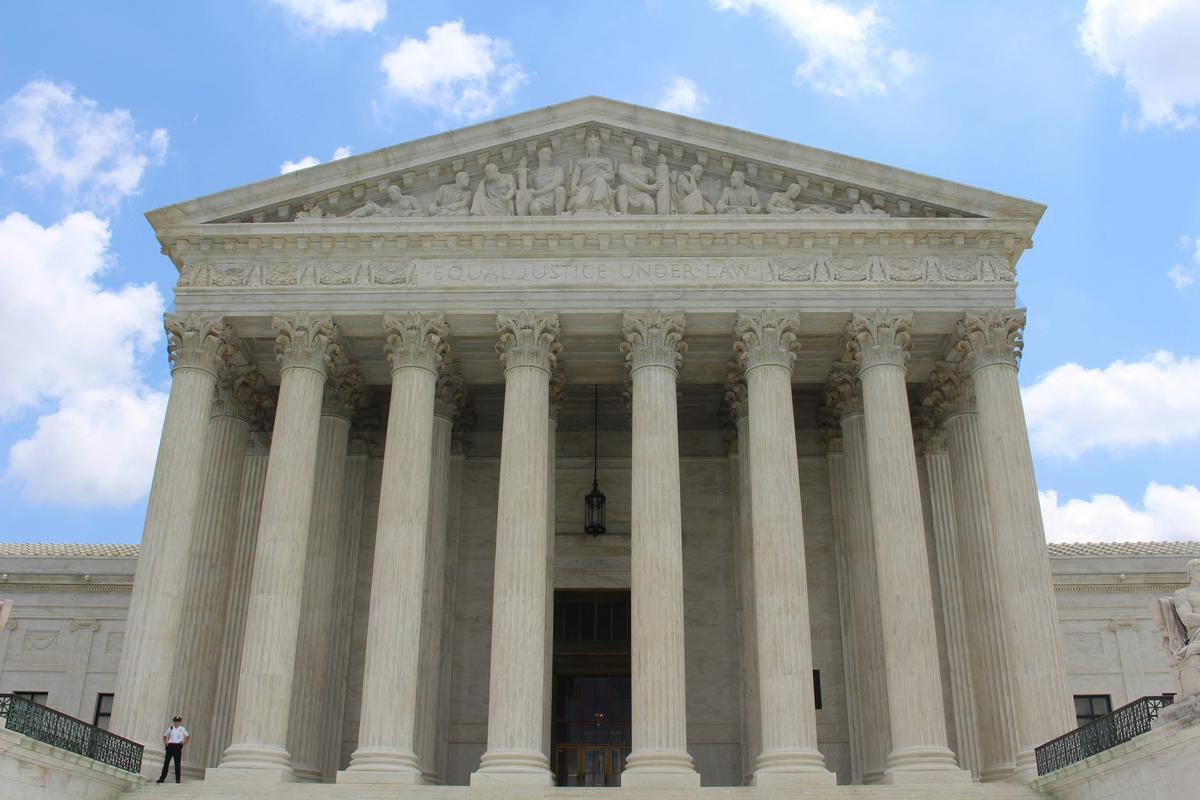Rent collection and tenant management in Prince George's County, Maryland, present a structured yet intricate set of challenges and responsibilities for landlords. This overview aims to shed light on the legal frameworks and procedural nuances that govern these interactions, offering clarity and guidance through the legislative landscape that dictates the dynamics between property owners and their tenants.
Understanding Rent Collection Laws
The Landlord and Tenant Code in Prince George's County, Maryland, provides a structured framework ensuring both renters and property owners know their rights and responsibilities. It addresses critical aspects such as rent collection and late fees. Landlords must give tenants notice about late fees, which can't exceed 1% of the monthly rent for each day it's late, promoting fairness and avoiding excessive penalties.1
Security deposits play a crucial role in the rent collection process. Landlords in Prince George's County can request up to two months' rent as a security deposit, serving as a buffer for potential damages or unpaid rent. This deposit must be kept in a Maryland-based insured bank account and returned with interest within 45 days after the lease ends, provided the tenant hasn't caused significant damage.2
If rent payment delays persist, landlords have the option to initiate eviction proceedings. Prince George's County law outlines the eviction process for non-payment, enabling landlords to recover their property under strict legal oversight. Prior to eviction, landlords must send a notice granting tenants time to pay the owed amount. If the situation remains unresolved, court proceedings may follow.3
Security deposits can also be utilized to cover unpaid rent if tenants vacate the property without settling their dues. However, deductions from the deposit for owed rent must be meticulously itemized and communicated to the tenant, ensuring transparency.
Prince George's County mandates rental licenses for single and multi-family rental facilities. Operating without a license can complicate rent collection processes and lead to legal issues.4
Each aspect, from deposit expectations and eviction steps to rental licensing, interlocks to create coherence in rental arrears management within the Prince George's County landscape. A thorough understanding of these elements ensures a smoother navigation through the rent collection process.

The Eviction Process for Non-Payment of Rent
When a notice of non-payment is issued and the designated period for tenant payment expires without resolution, landlords in Prince George's County, MD can file a 'Failure to Pay Rent' case at their local District Court. This critical step in legally pursuing eviction due to rent arrears requires detailed documentation, including:
- The lease agreement
- Rent payment records
- The initial notice of non-payment sent to the tenant
These documents substantiate the landlord's claim that the tenant has failed to comply with the rental agreement terms.
Upon successful filing and review, the court schedules a hearing attended by both the landlord and tenant. Landlords should present their case, supported by the provided documents, and may include witness testimonies or additional evidence of unpaid rent.
Tenants have the right to defend themselves against the eviction claim. Typical defenses include:
- Proving timely rent payment
- Contesting the claimed amount as inaccurate
- Highlighting the landlord's failure to maintain the rental property according to county health and safety standards, if relevant to the non-payment case
If the court finds the eviction claim valid and rules in the landlord's favor, it issues a Judgment for Possession. Tenants still have an opportunity to halt the eviction process by settling their dues in full before any eviction is enforced, under Maryland's Last-Minute Right to Redemption. Paying the overdue rent and court-awarded fees at this stage can annul the eviction directive.5
If payment remains unmade post-judgment, landlords can request a Warrant of Restitution from the court. This legal document permits law enforcement officers to proceed with the physical eviction of tenants, marking the culmination of the judicial eviction process and resulting in restitution for landlords but displacement for tenants.
Throughout each stage, strict adherence to legal procedures is essential. Landlords must ensure every step from notice issuance to eviction enforcement complies with Maryland's laws to safeguard against potential legal backlashes or delays in the eviction timeline.

Garnishing Wages and Bank Accounts
After securing a judgment against a tenant for unpaid rent in Prince George's County, MD, a landlord might consider garnishing wages or bank accounts to collect the debt. This process requires strict adherence to legal protocols and involves fresh court filings.
To initiate garnishment, the landlord must wait for the post-judgment period to pass, generally around 10 days. They must then obtain a writ of garnishment from the court, ordering the tenant's employer or bank to withhold a portion of their wages or funds and redirect them to settle the debt.
Maryland law sets clear limits on wage garnishment. Only a certain percentage of the tenant's disposable earnings may be garnished to ensure the tenant isn't deprived of the means necessary for basic sustenance. Bank garnishments are also not limitless, aiming to strike a balance between recovering debt and not entirely stripping the tenant of their financial resources.6
Landlords must be aware of exemptions under state and federal law designed to protect tenants from undue hardship. These exemptions outline specific types of income or account holdings that are off-limits from garnishment, such as:
- Social Security benefits
- Unemployment compensation
- Certain pensions
For wage garnishment, the landlord must serve the writ on the tenant's employer with precise instructions regarding the amount to be deducted from each pay period and where it should be sent. Bank account garnishment involves serving the writ directly to the tenant's bank, which will freeze the specified amount in the tenant's account upon notification.
Consulting with an attorney specializing in Maryland's rental and garnishment laws can ensure compliance and a smooth garnishment process. Professional guidance provides clarity on intricate legal points, prepares necessary documents accurately, and represents the landlord in potential court proceedings related to the garnishment action.
Landlords should approach wage and bank account garnishments with the understanding that these measures can significantly impact tenant relations and their financial stability. Open communication with tenants about impending actions can sometimes motivate prompt payment arrangements, avoiding the need for garnishment altogether.

Seizing Tenant’s Personal Property
Seizing a tenant's personal property for unpaid rent introduces a tricky legal scenario in Prince George's County, MD. While landlords might see property seizure as an immediate solution to rent arrears, the process isn't straightforward.
A landlord must have a court-issued judgment for the amount owed before considering the seizure of personal property from a tenant's premises. Once a judgment is obtained, the landlord may ask the court for a writ of attachment, allowing the tenant's property to be seized or attached to fulfill the debt. The tenant must be officially notified, offering them an opportunity to comply with the judgment or contest the seizure.
Not all property is fair game. Maryland law specifies exemptions aimed at protecting the basic living standards of tenants. Items essential for day-to-day living are shielded from seizure, such as:
- Clothes
- Household goods up to a certain value
- Tools of the tenant's trade or profession
- Certain amounts of cash or specified savings
Only non-exempt property may be targeted, and strict valuation and legal restrictions apply.7
The sale of seized property typically occurs through public auction, with proceeds first covering the costs of storage and sale, then satisfying the outstanding debt to the landlord, and any remaining funds returning to the tenant.
Post-judgment, tenants can release their belongings from attachment by settling the debt, often making property seizure a last-resort measure when all else fails.
Navigating through property seizure demands meticulous attention to legal detail. Overlooking a single step or failing to adhere closely to Maryland's legal stipulations risks not only the action's effectiveness but could implicate landlords in legal complications.
Open dialogue between landlords and tenants about possible consequences of non-payment and any subsequent legal actions can assist in preserving relations and may prompt voluntary resolution of the debt, circumventing the need for such drastic measures.

Photo by claireandy on Unsplash
Alternative Dispute Resolution
Alternative dispute resolution (ADR) methods, such as mediation and arbitration, offer landlords and tenants in Prince George's County, MD, an opportunity to address rent arrears outside of traditional court proceedings. These methods prioritize amicable solutions and aim to preserve the landlord-tenant relationship while addressing the financial issue at hand.
Mediation is a collaborative approach where a neutral third party assists both the landlord and tenant in reaching a voluntary, mutually beneficial agreement. It's ideal for those seeking a less adversarial method to resolve disputes. Initiating mediation involves contacting a local ADR center or the Prince George's County Human Rights Commission, which may facilitate this service or provide referrals.
Arbitration is more formal than mediation but less so than courtroom litigation. An arbitrator listens to both sides before making a decision, which can be binding or non-binding based on the prior agreement between the parties. This path is suited for cases where both parties want a decision made for them but prefer to avoid the cost and time of court.
Advantages of opting for these alternative methods include:
- Reduced legal expenses
- Quicker resolutions
- Outcomes that parties have had a hand in shaping
These aspects benefit both landlords faced with the daunting task of recouping lost rent and tenants seeking to avoid eviction and its long-term repercussions on their credit and renting history.8
To undertake either mediation or arbitration in Prince George's County, landlords can begin by drafting a simple agreement that includes consent for ADR, identifying the chosen method, and both parties' signatures. This can be proposed as a first step before escalating to more confrontational methods.
Outcomes from these processes greatly vary, from setting up a payment plan for rent arrears to agreements on tenancy termination under agreed terms. Successful mediation or arbitration not only resolves the current dispute but often leads to a better understanding and communication foundation for landlords and tenants going forward.
The Prince George's County Human Rights Commission offers guidance and potentially services directly or through referrals to specialists in the field. Engaging with the commission can provide additional insights into the ADR process and other helpful resources.

Managing rent collection and tenant relations in Prince George's County requires a thorough understanding and adherence to the legal standards set forth. This facilitates a smoother operational flow for landlords and ensures that tenants are treated fairly, fostering a balanced and respectful landlord-tenant relationship.
- Prince George's County, Maryland. County Code, Subtitle 13. Housing and Property Standards, Division 3. Landlord-Tenant Code.
- Annotated Code of Maryland, Real Property, § 8-203. Security deposits.
- Prince George's County, Maryland. County Code, Subtitle 13. Housing and Property Standards, Division 3. Landlord-Tenant Code, Sec. 13-175. – Landlord's complaint for repossession for failure to pay rent.
- Prince George's County, Maryland. County Code, Subtitle 13. Housing and Property Standards, Division 3. Landlord-Tenant Code, Sec. 13-183. – Rental housing license required.
- Annotated Code of Maryland, Real Property, § 8-401. Failure to pay rent.
- Annotated Code of Maryland, Commercial Law, § 15-601.1. Exemptions from attachment.
- Annotated Code of Maryland, Courts and Judicial Proceedings, § 11-504. Exemptions from execution.
- Maryland Mediation and Conflict Resolution Office. (2021). Landlord/tenant issues.
